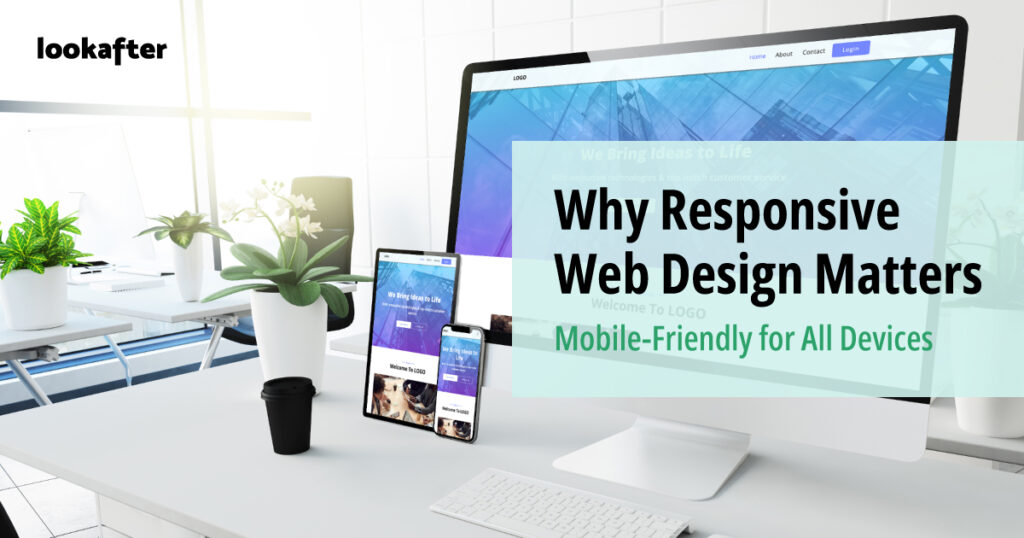Home > Empowering Tips > Why Responsive Web Design Matters

As the digital landscape continues to evolve, so do users’ expectations. They demand a smooth and seamless browsing experience, whether they’re using a large desktop monitor or a small smartwatch. This is where responsive web design plays a crucial role.
Responsive design is a web development approach aimed at creating websites that automatically adjust and adapt their layout and content based on the user’s device screen size and resolution. In simple terms, a responsive website looks and functions well on various devices, including desktop computers, laptops, tablets, and smartphones.
Responsive design is essential for several reasons:
Embracing the Multi-Device World
Gone are the days when people solely accessed the internet through desktop computers. The widespread use of smartphones, tablets, laptops, and even smartwatches demands websites that adapt to different screen sizes and resolutions. A responsive web design accomplishes just that. By employing flexible grids and layouts, the website automatically adjusts its appearance to fit the screen it is viewed on, ensuring a consistent and visually appealing experience for users across devices.
Enhanced User Experience
User experience (UX) is at the heart of responsive web design. When users visit a website, they expect a seamless and intuitive journey, irrespective of their device. A responsive design ensures that elements like text, images, and navigation are optimally displayed, making it easy for users to find what they need. No more excessive zooming, horizontal scrolling, or awkwardly formatted pages – a responsive site delivers a user-friendly experience that keeps visitors engaged and encourages them to stay longer.
SEO Benefits and Improved Search Rankings
Search engines, like Google, prioritize user experience in their ranking algorithms. With the advent of mobile-first indexing, responsive web design has become an essential aspect of search engine optimization (SEO). A single responsive website with a consistent URL structure is more SEO-friendly than having separate mobile and desktop versions. Additionally, a positive user experience on mobile devices often leads to lower bounce rates and higher engagement metrics, which further contribute to improved search rankings.
Cost-Effectiveness and Efficiency
Maintaining separate websites for mobile and desktop versions can be expensive and time-consuming. With responsive web design, businesses save costs by eliminating the need to develop and maintain multiple sites. Additionally, updates and changes are applied universally, streamlining the website management process and reducing the likelihood of content discrepancies between versions.
Future-Proofing Your Website
The digital landscape is ever-evolving, with new devices and technologies continually emerging. A responsive web design future-proofs your website by ensuring it can adapt to the devices of tomorrow without requiring significant redesigns or redevelopment. This not only saves time and resources but also keeps your website relevant and accessible to a wider audience.
In conclusion, responsive web design is not just a trend but a necessary approach to meet the demands of today’s multi-device world. By providing a superior user experience, benefiting SEO efforts, and promoting cost-effectiveness, responsive web design is an investment that pays dividends in the long run. Embrace this user-centric design philosophy, and your website will stand out in an ever-competitive digital landscape, winning the hearts of users and search engines alike.
Looking for responsive web design services? Check out Lookafter Web Design Plans >